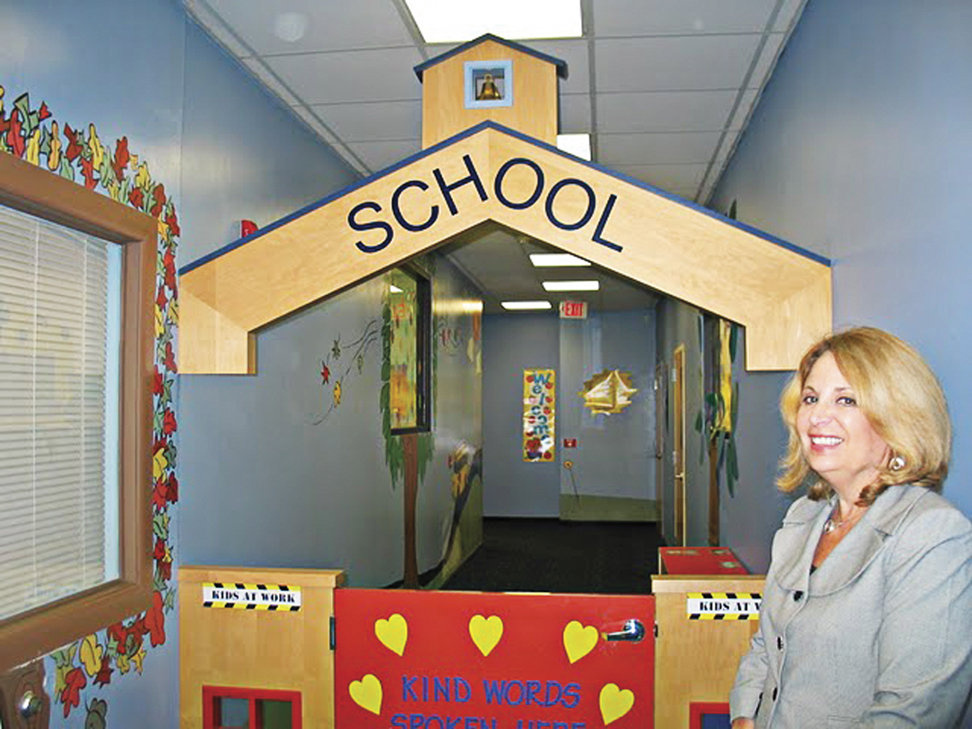(This is the second in a continuing series on women in leadership.)
Before Cynthia Randina stepped into the role of schools superintendent for Secaucus in September of 2008, Constantino “Gus” Scerbo had held the position for 23 years. Before him, Arthur F. Couch had held the position for 23 years since 1961. The residents of Secaucus were not accustomed to seeing a woman – a Latina, let alone an individual from another town – in this powerful position.
Education has traditionally been a field pursued by women. Yet, few ascend to the leadership role of superintendent – although this trend is changing. According to an American Association of School Administrators (AASA) study, the number of female superintendents has jumped from 13 to 24 percent in the past 10 years.
Hudson County has a predominance of males in superintendent roles with the exceptions of Randina and Dr. Patricia McGeehan in Bayonne.
“My charge is to educate students as best as I can so that they can face the challenges of the 21st century.” – Cynthia Randina
____________
Randina had big shoes to fill following in the footsteps of Scerbo, who was well liked among parents and teachers. She didn’t hesitate to make major changes from the onset, such as reassigning principals in 2009 and hiring directors that run various programs and conduct trainings within the schools. However, these changes have been controversial.
Randina even received a vote of no confidence in August of 2010 from the Secaucus Education Association, the local teachers’ union, opposing her management style, decision-making, and spending priorities, which the Board of Education responded to with a resolution fully backing Randina.
Randina talked about her perspective on women in leadership last week.
Who were your female role models growing up and why?
I was very fortunate to have had a mother who was my role model and who greatly assisted in modeling my character. She had a great deal of commitment to family, to society at large, and I followed in her footsteps.
She was widowed at a young age, and had three children to raise on her own. She had high moral values…placed education high on her list of priorities [and] was an educator who believed very strongly in pre-school and early education for all children.
She allowed me at an early age to assist in the nursery school and kindergarten classroom where she worked in the NYC school system. That is where I first became passionate about teaching and knew I would dedicate my entire life to educating others as she had especially for children who were less fortunate and of diverse backgrounds.
What did you learn about leadership as a young woman?
As a young woman growing up in New York City, I had countless opportunities to learn from great leaders. I participated in Girls Scouts until I was 16 years old. I was active in volunteering in hospitals, schools [and] in food pantries early on. I also had tremendous leaders when I worked for NYC Board of Education as a teacher. What I valued in them most was that they had tremendous organizational skills…high morale integrity, and they also got along with those who they were leading.
Have you ever faced any gender discrimination? Growing up, or in the workplace?
I’ve always tried to rise above labeling negative behaviors. I try to concentrate my efforts on forming productive relationships. Even when there is a disagreement, I try to see it as an opportunity for growth. In the event that I ever faced gender discrimination, I can’t think of one. It is not something that I would have given in to but I would have worked around.
Most of the promotions that I received were given to me by male principals and superintendents. Even Gus Scerbo strongly supported me as a visionary leader. He felt I could bring the Secaucus school district to the next level.
Your leadership style has come under heavy criticism by parents and teachers, some calling it “uncommunicative.” Does it go against the grain and challenge what residents have been accustomed to?
Contrary to what certain individuals like to put out, especially in the press, I’d rather say that I have been met with a great amount of support from parents and teachers. Unfortunately, those parents and teachers are the silent majority.
I don’t believe that any leader escapes criticism. That is part of being a leader. I look toward that criticism as an opportunity for growth.
One hundred percent of my day is spent in communication with individuals and various members in the school district. My best day is when I visit the schools and meet with the teachers.
Gus Scerbo was here for 23 years. The residents and staff may have grown accustomed to a familiar style. Sometimes it is hard to let go of what is familiar and embrace someone new with new ideas.
I understand people have a position [and] that they can express their position [which] may be in disagreement with mine. I still have to move forward and work people who disagree with me.
In education everything is changing rapidly. I ask parents to embrace the changes. My charge is to educate students as best as I can so that they can face the challenges of the 21st century.
Adriana Rambay Fernández may be reached at afernandez@hudsonreporter.com.
